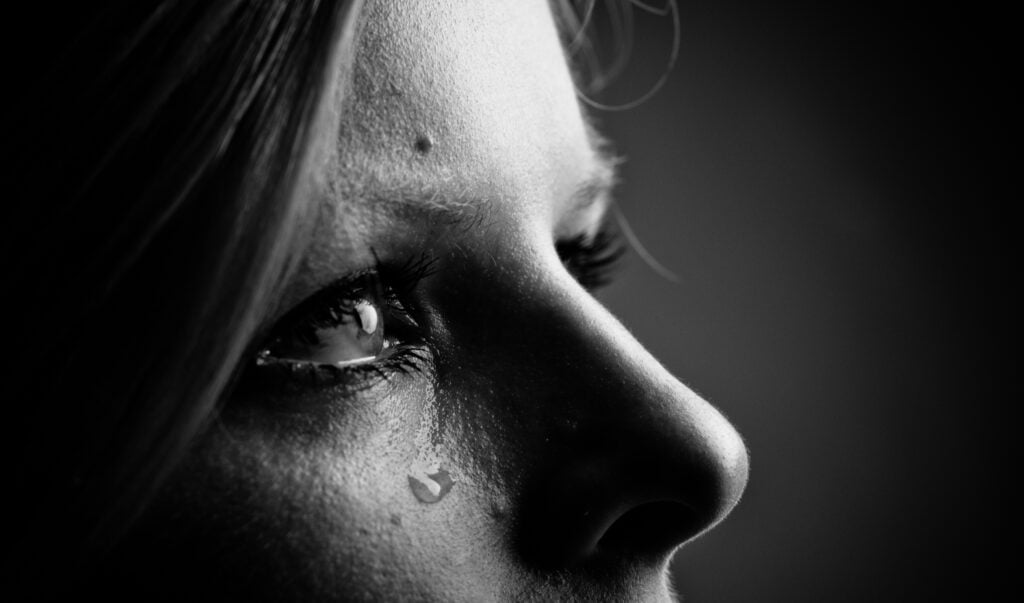It’s our mother’s and father’s job to be a warm, loving and caring presence in our lives.
The way we relate to our parents is reflected in our adult lives.
Unfortunately, not everyone has had the experience of being raised by good people.
Many children today grow up without a father or in a toxic environment.
While some people have lost their fathers due to sad life circumstances, many children have never known paternal love.
Being abandoned as a child leaves a lasting impression on your personality.
In fact, here are the direct consequences of the lack of a father figure in girls’ lives.
1. Low self-esteem

When fathers leave home and are less present in their children’s lives, children often resent it.
As a child, you get no explanation as to why your father is no longer around.
It’s not something you can deal with entirely on your own.
The subject is very sensitive and adults generally don’t want to have difficult conversations with you.
The only logical explanation in the child’s mind is that it’s his fault and he’s unlovable.
This applies particularly to girls.
It makes them feel that something is missing.
Personally, professionally, academically, physically, socially and romantically, they never feel good enough.
2. Eating disorders

This unhealthy preoccupation with your weight and diet is closely linked to your low self-esteem.
Anorexia nervosa, bulimic hyperphagia, body dysmorphia, etc. are just some of the diagnoses that fatherless women are more likely to have.
It has also been hypothesized that daughters whose fathers are physically or emotionally absent are twice as likely to be overweight.
Psychologists call this phenomenon “father hunger”.
Because your desire for a close relationship with your father is not possible, you feel a deep inner emptiness that you try to regulate with food.
You either eat too much or too little.
You can’t work on this until you accept that your body weight doesn’t determine how lovable you are.
3. Girls become s*xually active earlier

Girls who have close relationships with their fathers are less likely to become pregnant as teenagers.
They are more cautious about entering into s*xual relationships and delay them.
These girls wait longer to marry and have children.
It is also thought that their marriages last longer and are filled with more emotional satisfaction and stability.
When the father-daughter bond is unstable, teenage girls are four times more likely to become pregnant.
4. Addiction and substance abuse problems

It’s not news in modern psychology that there’s a strong correlation between addiction and experienced emotional neglect.
If you don’t receive the love and affection you need as a child, and you don’t form a healthy bond with a parent, you’re more likely to seek that connection in your environment.
When your father is absent, you’re more likely to fall into a bad pattern of depression, low self-esteem and other problems.
To numb the pain, girls turn to substances or take medication so they can suppress the pain they feel.
Breaking out of this cycle isn’t easy.
A lot of help, patience and a good support system are needed.
5. Depression and anxiety

When you’re afraid of being abandoned because of rejection, you’re more likely to isolate yourself emotionally.
It’s a defense mechanism so no one can hurt you.
Not surprisingly, girls who grew up without the physical and emotional presence of a father are more likely to suffer from depression and anxiety as adults.
Signs include avoiding romantic relationships that seem very healthy because you feel you don’t deserve happiness.
In fact, you fear it.
Sadness is what you’re comfortable with and you’ve learned to function when you’re sad.
On the other hand, you could be rushing into a clearly unhealthy, dead-end relationship, because it’s sure to lead to heartbreak.
But you’re not afraid of dark emotions; you connect with them because you know them.
The mourning period is something you have to get through in order to move on.
6. Difficulty forming and maintaining relationships

Attachment theory suggests that when we form close relationships with our parents in early childhood, we develop the ability to connect with others in healthy ways.
When this balance is disturbed, you feel anxious.
You prefer to be alone and like to keep your life very private.
This is something you do when you want to protect your inner child from harm.
Growing up with absent fathers makes it very difficult for girls to form lasting relationships, especially with men.
You simply don’t have a good female-male dynamic in mind.
Most of the time, you’re suspicious of people.
You like to develop superficial relationships with partners.
7. Distorted sense of self

As a child, if you don’t have a safe space to express yourself with your parents, you don’t learn to understand yourself and your needs.
This leads to constant insecurities because you have no idea who you are and where you’re going in life.
You may not have an objective view of what’s going on.
Another problem is that you never really feel comfortable being yourself.
No matter what you look like, how you dress or what you believe in, your personality can become very disordered because you have no anchor.
While growing up without a father is a very unsettling experience, to truly become one with yourself, you need to understand what’s going on in your head.
8. History repeats itself

If the deep wounds left by an unloving father don’t heal, you might unconsciously try to seek out the same relationship dynamic over and over again.
It’s not something you do on purpose, but something you feel safe with.
It’s something you can process because it’s happened before.
It could also be your brain trying to find a comfort you never had.
However, this usually leads to even more pain.
Conclusion

When a father could have been there for his daughter, but completely reneged on his paternal duties and rejected his child, he hurts the soul of the girl he was supposed to protect.
She grows up with a completely different way of thinking.
Psychologists believe that if a girl has not been raised with a good example, she is more likely to choose a partner who reproduces her father’s behaviors.
Fatherless women report many problems compared to women who have a healthy relationship with their father.
They list the following:
- Less luck
- Great frustration and anger
- Difficulty establishing intimate relationships with others
- Fear of abandonment
To recover from this damaged relationship, a woman must learn to be her own father, to embrace and receive the kind of love a father should offer.
It’s a lifelong process, but if you surround yourself with the right people, it’s possible.
You need to be in an environment that encourages support, the right skills and lots of patience.
Communication is also necessary.
However, it doesn’t solve everything like a magic wand.
The pain and sadness will still be there from time to time, but they will change shape and it will get easier with time.
You can grow as a person, learn, succeed, prosper and learn to love and be loved.
Your life can be a wonderful journey if you accept in your heart that you are not the problem.
The failures of others are not your responsibility.
However, how you shape your life afterwards is your responsibility.
Healing won’t be an easy process, but it is possible for you.

